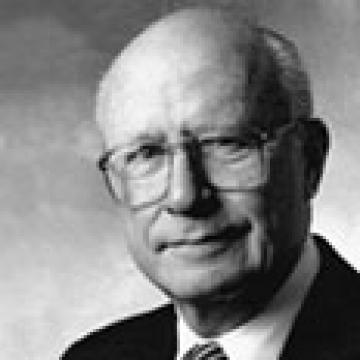Grover Cleveland: Impact and Legacy
Historians do not rank Grover Cleveland as a great President. Even as a party leader, the consensus is that he achieved mixed results at best. Cleveland did help to create a Solid South for the Democrats by encouraging former Confederates to believe they had a friend in the White House; his return of captured Confederate battle flags and his decision to go fishing on Memorial Day—a Civil War holiday—aided in this regard. He also strengthened the party outside the South by linking it to civil service reform.
On the other hand, his stubborn enmity toward the Silverites and agrarian populists nearly split the Democrats and contributed to their defeat in 1896. He distanced himself from party machines by insisting that the President had a special relationship with the people that superseded any obligation to party workers. This was a concept of the presidency as monarchical if not imperial. He viewed the cabinet as his privy council rather than as a party council representative of the leadership of the Democratic Party. Not opposed to using patronage, he insisted that the appointed Democrats be qualified and honest.
Although not a great President, Cleveland almost single-handedly restored and strengthened the power and autonomy of the executive branch. Notable in this regard was his use of executive privilege in refusing to hand over department files to Congress in the fight over presidential appointments. No President prior to Richard M. Nixon had ever made such an extreme assertion of executive privilege in peacetime. His record-breaking use of the presidential veto also enabled him to reestablish the equilibrium between the executive and legislative branches, another precedent-setting example of presidential power.
Equally important, Cleveland laid claim to a strong presidency in ways that had lasting impact. His assertion of authority in calling out federal troops during the Pullman strike, sending warships to Panama, and threatening Britain with war over the Venezuelan boundary dispute set the tone for the modern energetic executive. Regarding social policy, Cleveland comes across as much more racially intolerant, and certainly when compared to Presidents such as Abraham Lincoln, Theodore Roosevelt, and Franklin Roosevelt.
In the final analysis, Cleveland thought more in terms of command than leadership. As the nation's chief executive, he had no real vision for the future, nor was he interested in articulating one, suggesting that his was still a pre-modern presidency. His lack of a college education—almost unique among the nation's Presidents—left him largely unfamiliar with the great ideas of history. Indeed, his reluctance to provide the country with a clear, ideological direction or to bend Congress to his will indicated his conception of his duties. In his mind, it was enough for him to be hard working, honest, and independent. These are virtues in a small town mayor, perhaps, and necessary attributes in a President in times of political corruption—but no real basis for greatness in an era of severe economic depression, populist insurgency, and increasing prominence on the world scene. That he placed so much stock in a reduced tariff, for example, reflected his simplified understanding—widely shared, nonetheless—of the nation's needs. At the most, historians tend to see Cleveland's presidency as an essential preface to the emergence of the modern presidency that began with Theodore Roosevelt.
